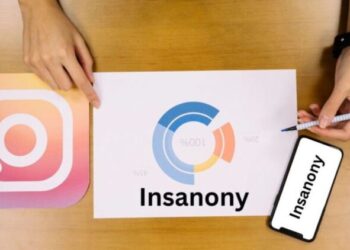The Power of Words in Modern Communication
Words shape our thoughts, relationships, and emotional landscapes. In today’s fast-paced digital age, where texts and tweets often replace face-to-face communication, the line between humor and harm can blur easily. One phrase that’s gaining serious traction in psychology and communication circles is “Be Attentive Not Sarcastic.”
The phrase isn’t merely a motivational slogan; it reflects a deeper cultural need to reassess how we interact. While sarcasm might seem witty, it often hides passive aggression and can lead to emotional distance. Attentiveness, on the other hand, fosters understanding, trust, and deeper connections.
As we move into an era where mental health and emotional intelligence are prioritized, it’s essential to examine how our everyday speech influences both personal and professional relationships. And that’s exactly what this article aims to unpack.
Why “Be Attentive Not Sarcastic” Is More Than Just Advice
The phrase “Be Attentive Not Sarcastic” calls for more than polite behavior—it demands conscious communication. Sarcasm, while often praised for its humor and sharp wit, can create invisible walls between people. Often, sarcastic remarks carry a double meaning: they sound like compliments or jokes on the surface but hide criticism or contempt underneath. This type of communication is classified by psychologists as a form of passive-aggression.
Being attentive means actively listening, observing body language, and responding with genuine empathy rather than veiled criticism. In relationships—whether at work, home, or social settings—attentiveness builds trust and openness, while sarcasm can lead to misunderstandings and resentment. Research shows that people who consistently use sarcasm tend to experience poorer emotional connections and increased conflicts.
For instance, a sarcastic comment like “Oh great, you’re late again, how surprising!” might provoke defensiveness or hurt feelings, while an attentive response would be, “I noticed you’re late. Is everything okay?” The latter invites dialogue and support instead of conflict. Clearly, the phrase highlights the need for communication that prioritizes understanding over cleverness.
Psychological Effects of Sarcasm on Mental Health
Sarcasm’s impact on mental health often goes overlooked, yet it can profoundly affect self-esteem and emotional well-being. Studies indicate that frequent exposure to sarcasm—especially from loved ones—can increase feelings of anxiety and depression. This is because sarcasm’s indirectness forces the brain to work harder to decode meaning, causing cognitive overload and emotional stress. Learn more
Moreover, when sarcasm is used as a habitual coping mechanism for frustration or anger, it can erode interpersonal relationships over time. People subjected to sarcastic remarks may start to question their self-worth, feeling undervalued or misunderstood.
Conversely, practicing attentiveness creates a supportive communication environment where emotions can be safely expressed and validated. Mental health professionals emphasize that empathy-driven communication reduces psychological distress and promotes resilience.
For example, a case study of couples therapy found that partners who replaced sarcastic jabs with attentive listening reported higher satisfaction and emotional intimacy. This evidence highlights the power of choosing words mindfully, reinforcing why “Be Attentive Not Sarcastic” is essential for healthy mental states.
Neuroscience Behind Attention vs. Sarcasm
From a neuroscience perspective, the brain reacts differently to sarcastic versus attentive communication. When processing sarcasm, several regions are activated: the prefrontal cortex (involved in understanding intentions), the superior temporal sulcus (for social cognition), and the amygdala (emotional responses). This complex activity demands cognitive effort, often leading to confusion or misinterpretation.
Attentive communication, in contrast, tends to engage neural pathways associated with reward and empathy, such as the ventromedial prefrontal cortex and the mirror neuron system. These regions promote feelings of connection and trust, making conversations more meaningful and less stressful.
Furthermore, studies using functional MRI have shown that sarcasm increases stress hormone cortisol levels, while sincere and attentive dialogue lowers them. This neurological evidence supports the argument that being attentive not sarcastic fosters healthier brain states and emotional balance.
Case Studies: Workplace, Family, and Digital Communication
Sarcasm’s role varies widely across different social settings, often yielding unintended consequences.
Workplace
In professional environments, sarcastic humor may be seen as clever banter, but it risks alienating colleagues. A survey of corporate employees revealed that 60% felt sarcasm created barriers to collaboration and trust. Attentive communication, by contrast, encourages open dialogue, feedback, and positive teamwork dynamics.
Family
Within families, sarcasm can damage foundational bonds. Parents or siblings who routinely use sarcasm risk instilling confusion and emotional withdrawal, particularly in children who may struggle to understand nuanced language. Family therapists recommend replacing sarcasm with clear, attentive conversations to nurture healthier emotional development.
Digital Communication
Online, sarcasm is notoriously difficult to interpret without vocal tone or facial cues, leading to misunderstandings and cyber conflicts. Social media platforms are rife with sarcastic remarks that fuel negativity and trolling. Experts advise users to practice attentiveness by choosing clear, empathetic language to build positive digital communities.
The Role of Social Media in Fueling Sarcasm
Social media amplifies sarcasm through its brevity and anonymity. Platforms like Twitter and Reddit thrive on witty, sarcastic comments that often go viral. However, this has contributed to a culture where sarcasm is normalized as the default response, sometimes at the cost of meaningful connection.
The digital environment’s lack of non-verbal cues makes it easier for sarcasm to be misunderstood or escalate into hostility. Studies show that sarcasm-heavy online interactions correlate with increased stress and decreased life satisfaction among frequent users.
Yet, social media can also promote attentiveness through thoughtful posts, active listening in comments, and positive engagement. Movements encouraging kindness and mental health awareness aim to counterbalance sarcasm’s dominance with genuine communication.
How Attentiveness Enhances Emotional Intelligence
Emotional intelligence (EI) is the ability to recognize, understand, and manage our own emotions and those of others. Being attentive instead of sarcastic is a critical component of developing high EI. When we listen attentively, we tune into subtle emotional cues—tone of voice, facial expressions, and body language—that sarcasm often obscures or dismisses. This heightened awareness enables us to respond thoughtfully, rather than reacting defensively or with biting humor.
Sarcasm, while sometimes perceived as witty, can actually reflect low emotional intelligence because it often distances us from sincere emotional engagement. In contrast, attentiveness fosters empathy and helps build stronger emotional connections. Psychologists suggest that individuals who practice attentive communication are better at resolving conflicts and managing stress in relationships.
Moreover, companies now emphasize EI training, teaching employees to replace sarcasm with mindful listening and respectful dialogue. This shift not only improves workplace culture but also enhances individual well-being by reducing misunderstandings and emotional exhaustion.
Cultural Perspectives on Sarcasm and Attentiveness
Cultural backgrounds significantly influence how sarcasm and attentiveness are perceived and used. In some Western cultures, sarcasm is celebrated as a form of humor and cleverness, while in many Eastern societies, direct and attentive communication is valued more highly. These cultural nuances affect interpersonal dynamics, especially in diverse or global environments.
For example, a sarcastic remark that may be taken as lighthearted teasing in one culture could be considered rude or offensive in another. This cultural gap often causes miscommunication and strained relationships in international teams or multicultural families. Being attentive means recognizing these differences and adapting communication styles to ensure respect and clarity.
Furthermore, the rise of global social media platforms has made understanding cultural communication styles more important than ever. Attentive communication not only bridges these gaps but also fosters cross-cultural empathy and collaboration.
The Future of Communication: Mindfulness Over Sarcasm
As society becomes increasingly aware of mental health and emotional well-being, the trend is shifting away from sarcasm toward more mindful and attentive communication. Educational programs now emphasize emotional literacy and active listening from a young age, aiming to create generations that value empathy over clever retorts.
Technological advances also play a role in this transformation. AI tools and apps designed to detect tone and sentiment encourage users to phrase messages more thoughtfully, reducing sarcastic or ambiguous language online. Moreover, mental health apps promote mindfulness practices that improve self-awareness and communication skills.
Ultimately, the future of communication lies in balancing humor with kindness. While sarcasm may never disappear entirely, its dominance is waning as people seek genuine connections. The mantra “Be Attentive Not Sarcastic” encapsulates this shift and invites everyone to participate in healthier, more meaningful conversations.
Replacing Sarcasm with Empathy: Real-World Techniques
Transitioning from sarcasm to attentiveness requires intentional effort. Here are some practical strategies:
- Pause Before Responding: Give yourself time to think about the impact of your words.
- Ask Clarifying Questions: Instead of sarcastic remarks, seek to understand the other person’s perspective.
- Practice Active Listening: Focus fully on the speaker without planning your comeback.
- Use “I” Statements: Express feelings without blaming, e.g., “I feel frustrated when…”
- Model Empathy: Demonstrate caring and understanding in your own speech.
Therapists also recommend journaling and mindfulness to build self-awareness around communication habits. These techniques foster more attentive, sincere exchanges that strengthen relationships and mental health.
Fazit
In conclusion, the phrase “Be Attentive Not Sarcastic” encapsulates a vital psychological insight about the power of words. While sarcasm may offer momentary humor, it often undermines trust, fuels stress, and damages emotional well-being. Attentive communication, by contrast, nurtures empathy, clarity, and connection—qualities essential for thriving relationships in all areas of life.
Understanding the neuroscience, psychology, and social implications behind our choice of words encourages us to embrace mindfulness in everyday conversations. As culture slowly shifts away from sarcastic banter to genuine attentiveness, we can expect healthier interactions and happier communities.
FAQs
Q1: Why is sarcasm harmful despite being funny?
Sarcasm often masks criticism and can cause confusion or hurt feelings, affecting emotional health negatively over time.
Q2: How can I become more attentive in conversations?
Practice active listening, ask clarifying questions, and pause before responding to ensure empathy guides your words.
Q3: Does sarcasm always harm relationships?
Not always; in some contexts, it can build camaraderie, but frequent or harsh sarcasm often damages trust.
Q4: Can social media change the way we communicate?
Yes, social media both fuels sarcasm and offers tools for promoting attentiveness and kindness online.

















